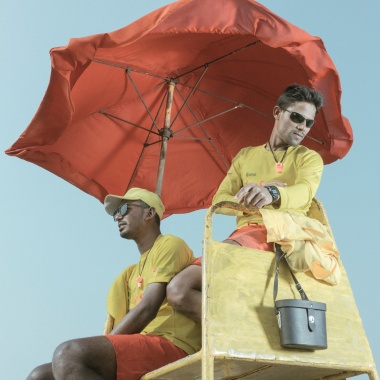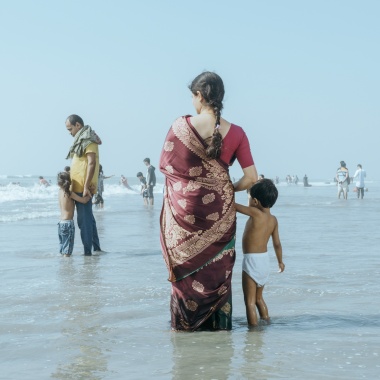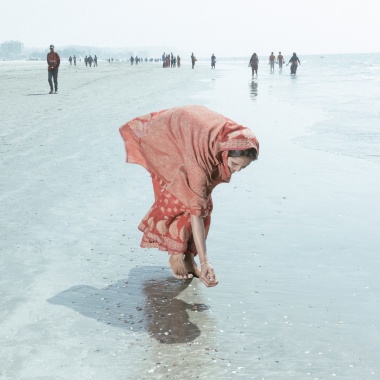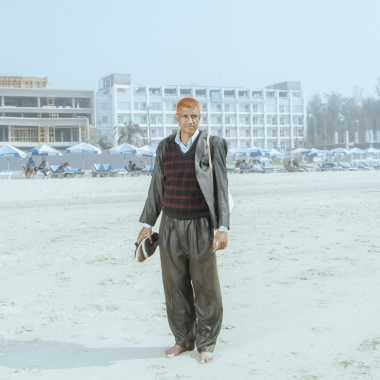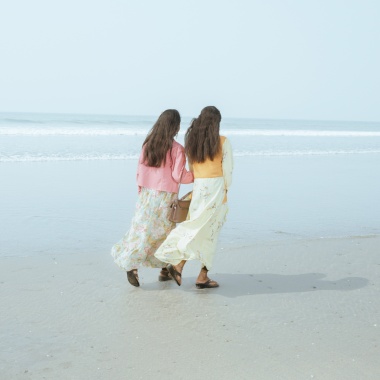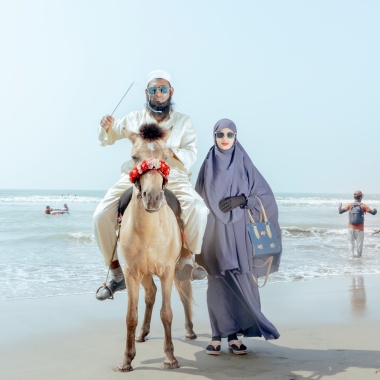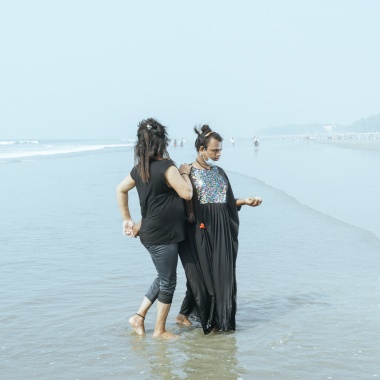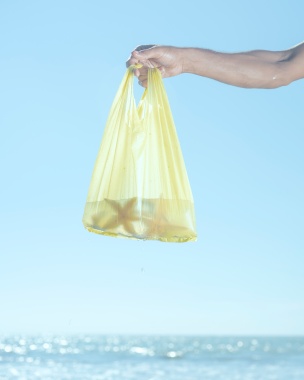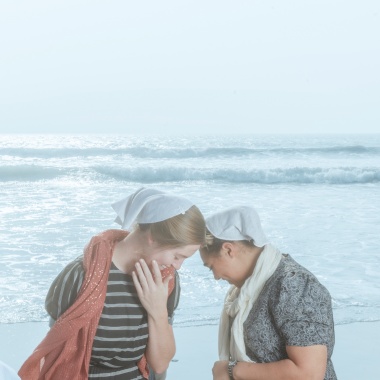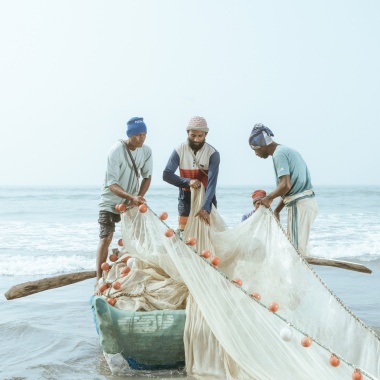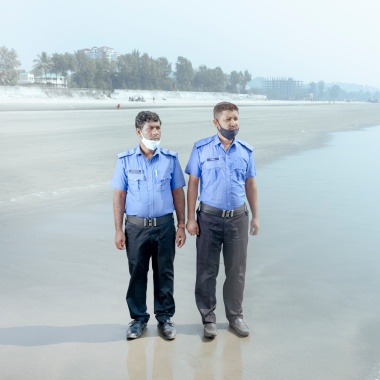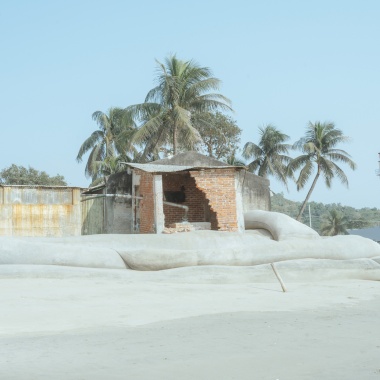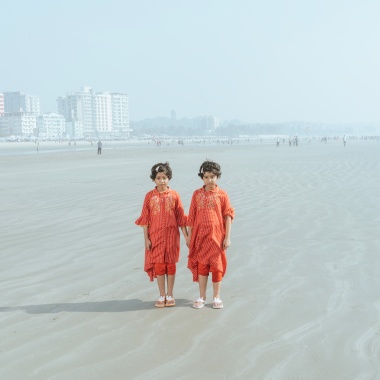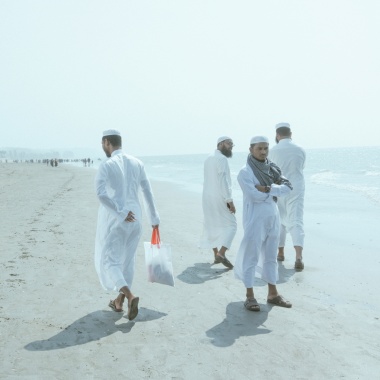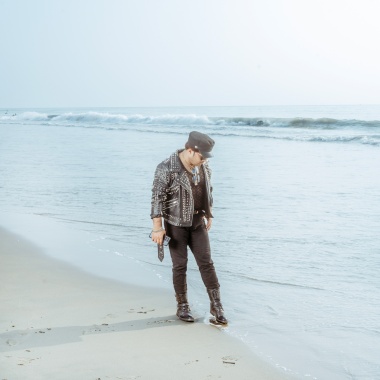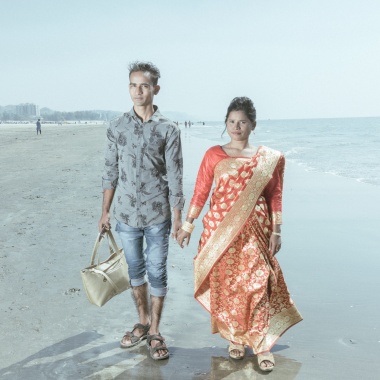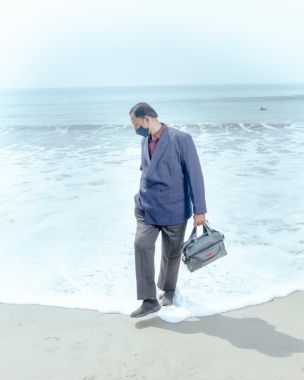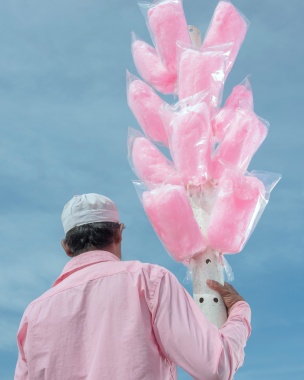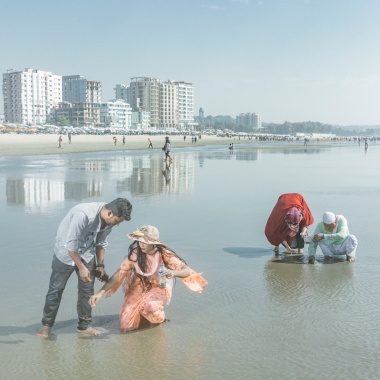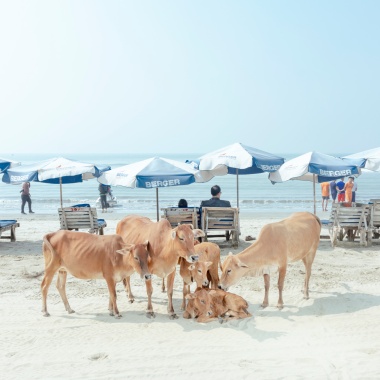Ismail Ferdous: Sea Beach
People at the beach: couples, children, large families, and shell seekers, as well as vendors, fishermen and lifeguards – the photographer portrayed them all for his series. Cox’s Bazar Beach is a special place for those looking for relaxation and distraction, or pursuing their work. This brightly coloured series presents the cultural diversity of Bangladesh in all its splendour.
Cox’s Bazar Beach lies on the Bay of Bengal, very close to the city of the same name. It is 120 kilometres in length, and is often referred to as the longest natural salt water beach in the world. It received its name in 1799, when a market was established there in memory of a British East India Company officer. Every year, millions of Bangladeshi visitors head for the fine sand beach, while the number of travellers from abroad who join them is growing steadily.
“Tourists from all 64 Bangladeshi districts flood Cox’s Bazar Beach. It is an incredible experience to hear the different dialects, and to meet people from every walk of life. The beach is a true melting pot, where Bangladeshi culture, people and languages come together in a unique and lively manner.”
The beach is a place of fond memories for the photographer: from a young age, he visited there regularly with his family, and later with his friends. For the past seven years, Ferdous has been living in New York, working as a photojournalist; yet, even there, he has pursued his interest in beach life, taking pictures at the nearby beaches. The etiquette and behaviour of beach-goers in the USA, however, is fundamentally different from traditional beach life in Bangladesh. Sunbathing at Cox’s Bazar Beach is frowned upon, and even swimming is not common. It is more about strolling on the beach, and socialising with family and friends; even companies are known to come to the beach with their employees. Of course, recreational activities have changed significantly in recent decades, and there are now opportunities to go jet skiing, parasailing, kayaking, horse riding and surfing. This also means the presence of lifeguards on the beach. Yet, despite all the global influences and the western lifestyle culture, beach life here continues to be defined essentially by tradition: beach-goers wear their best outfits and walk calmly along the sand. This made it easy for the photographer to find his motifs. “I had a specific plan in mind, when it came to speaking to people,” he remembers. “I went about it spontaneously, and I let myself be guided by my curiosity and emotional connection. I just wandered along the beach for a couple of hours, listened to my intuition, and allowed the scenes to unfold in a natural manner. To be honest, it was no challenge to approach people and ask them to be photographed. In most cases they were cooperative and ready to take part.”
Even so, the pictures are not simple snapshots. The series, which was created over the last four years, is determined by a precisely-staged concept: taking pictures during the winter months, and always at midday, Ferdous also used additional artificial light sources to create the radiant lighting he was looking for. A series was thus created that depicts his place of wistful memories, while also touching on topical themes: consumerism and luxury slip into the pictures; as well as the visible signs of climate change, revealed by soil erosion. Ferdous is also well aware that another socio-political hotspot lies only a few kilometres away. As a photojournalist, in former years he repeatedly photographed the huge refugee camp of Rohingya, who found shelter from the genocide in Myanmar very close to Cox's Bazar. His new “Sea Beach” series, however, was always meant to be a distinctly artistic examination of the place.
Ferdous’ project was proposed by Dimitri Beck and James Wellford, who were among this year’s 60 international LOBA nominators.
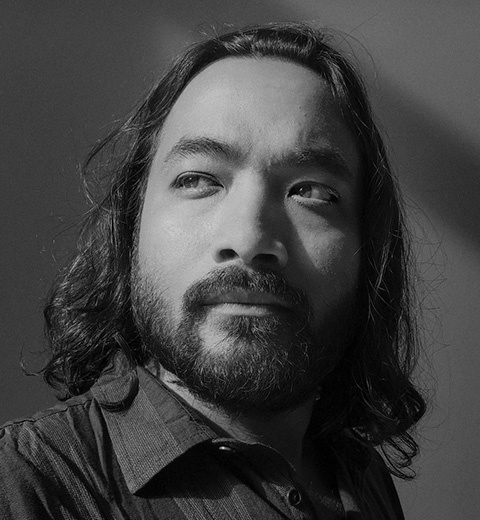
Ismail Ferdous
Born in 1989, and raised in Dhaka, Bangladesh, Ferdous decided to become a photographer while studying Economics at business school in Dhaka. He is a member of the Agence VU’ in Paris. His photography and film projects are dedicated to social, cultural and humanitarian themes. He works for the most important international newspapers and magazines, and his work has received multiple awards. Ferdous has been living in New York, since 2016.
Portrait: © Danielle Amy
